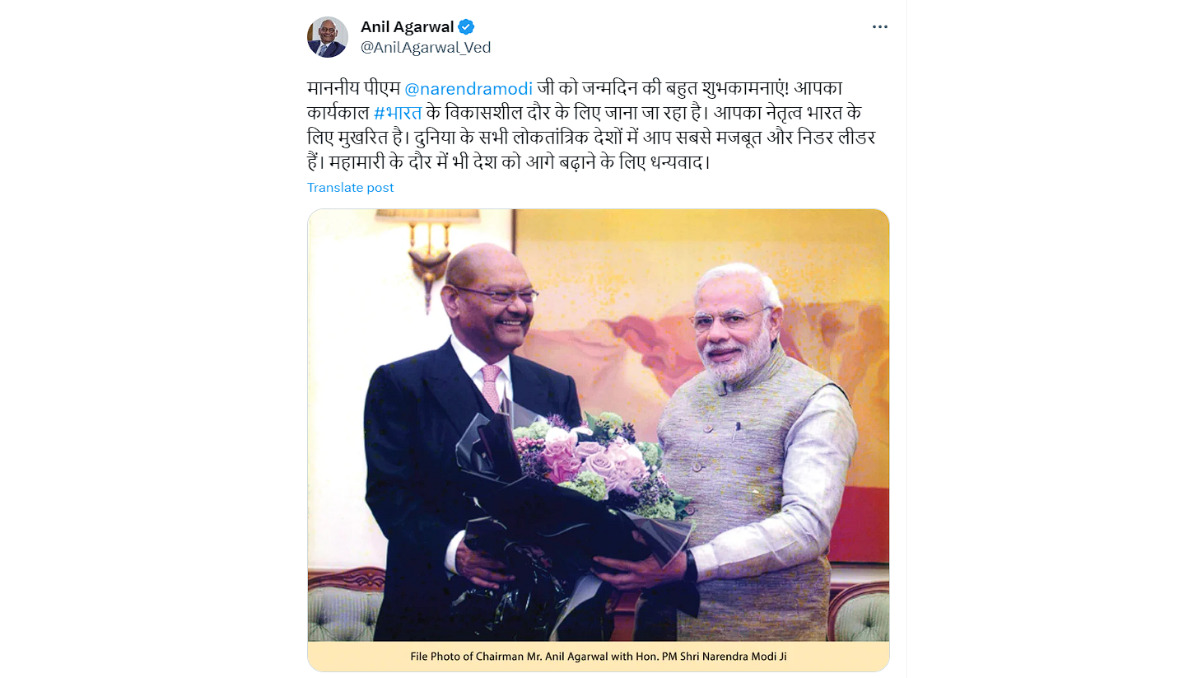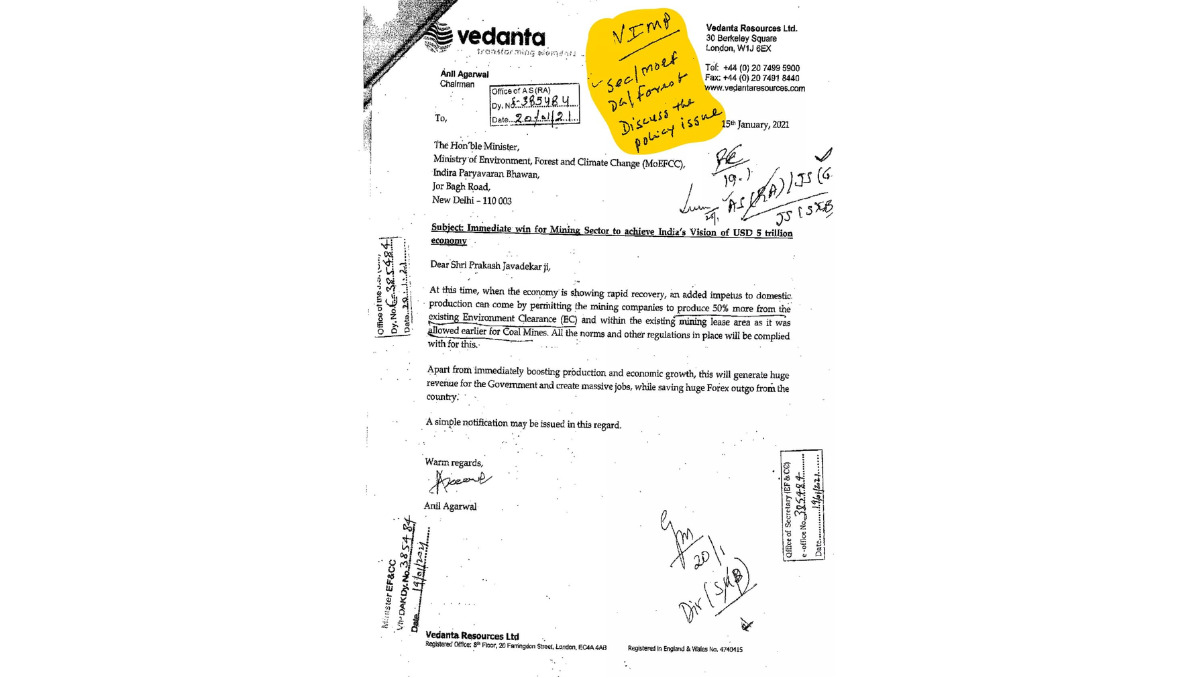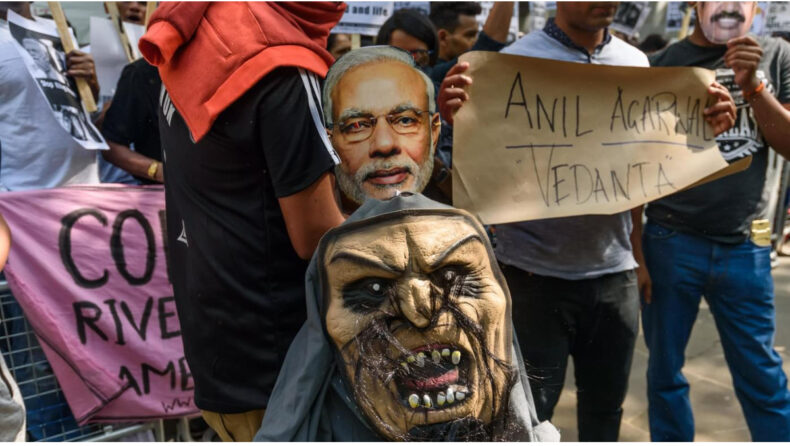Mining and oil giant Vedanta has come under fire for allegedly successfully lobbying the government to loosen environmental regulations, according to a new report.
Table of Contents
Vedanta’s “covert” operation
The Organized Crime and Corruption Reporting Project (OCCRP), who in a different report lobbed serious allegations against another affluent Indian conglomerate in the Adani Group nearly 24 hours ago, have shifted their aim towards Vedanta. According to the new report, “thousands” of documents such as internal memos, minutes of “closed-door meetings”, letters, amongst others, had been procured via RTI petitions.
These documents, allegedly, have led them to believe that the heavy industry giant lobbied the government to allow mining companies to produce up to 50% more without needing new environmental approvals, with the government allegedly complying without any public consultation by using, what are deemed by experts to be “illegal methods”.
Simultaneously, a previous effort of lobbying from Cairn India, Vedanta’s oil subsidiary, has been flagged by the report, which aimed to scrap public hearings for exploratory oil drillings in oil blocks won in government auctions. Evidence gathered has suggested that six oil projects have since been approved in Rajasthan, despite opposition from the local communities.
Vedanta, via an email from their spokesperson to OCCRP, claimed to aim for decreasing foreign dependency by “enhancing domestic production in a sustainable manner”, with their “continuous representations” submitted to the government intending to align with the “best interest of national development” and India’s push towards self-reliance in terms of natural resources. OCCPR attempted to reach out to the PM’s office, Bhupender Yadav, the current environment minister, along with Prakash Javedkar, his successor, for comments, but none replied.
With questions already raised in the public sphere regarding the relationship between the Modi administration and the Adani Group and the preferential treatment given to the latter as a result, these fresh allegations have the potential to further pose problems. The new report also highlighted possible links between the PM and head honcho Agarwal, who has been described as a “fan” of Modi, implied through his public endorsements of Modi and the BJP. Analysis of Vedanta’s contributions done by OCCRP point at two trusts linked to the mining giant donating $6.16 million to the party between 2016 to 2020.

The allegations
The reports highlight 2021 as a crucial year, when the pandemic’s shockwaves were felt throughout the health industry, along with the Indian economy being dealt with major blows. Documents procured point the finger at Anil Agarwal, chairman of Vedanta Resources Ltd. as the figure behind the first rounds of communication between the company and the government.
In a letter to then environment minister Javadekar in January that year, Agarwal proposed an “impetus” to allow for “rapid” economic recovery by allowing mining companies to extend production upto 50% without requiring new environmental clearances. Agarwal listed down the possible benefits; an immediate boost to production, economic growth, massive job creation, and generation of “huge revenue for the Government”, while suggesting that the necessary changes can be made by a “simple notification”.

The report then claimed that Javadekar relayed the request to the secretary of his ministry and the director general of forestry, urging them to “discuss [the] policy issue”. Similar changes have been pushed for by mining groups but with little success, as those kinds of changes were deemed to be difficult to enact. However, as internal documents and government sources imply, Vedanta’s influence and efforts were key in finally crossing the line and making those regulation changes a reality.
In early 2022, despite internal division and concerns around the procedure of the operation, the environment industry allowed mining companies to boost their production to upto 50% without needing any new approvals after meetings held behind closed doors. The tweak in the regulations was allegedly communicated via an office memo, usually meant for inter-office communication, on the ministry’s website.
“Corporate capture of environmental governance”
Experts in touch with OCCPR and it’s findings found the implications alarming, suggesting that such “backroom lobbying” allows affluent and influential corporate players close to the government to push for favourable tweaks to policies and regulations, with little consideration to damages wrought on local communities. Such crucial regulations being bent or getting rid off via tools like office memos, thus skipping public debate, has raised questions amongst legal experts.
A study of pandemic-era regulatory changes conducted by Vidhi Centre for Legal Policy, an Indian think-tank, has considered such tactics from the government to be “skirting the law”. The head of the climate and ecosystems team of the think tank, Debadityo Sinha, expressed his concerns about the compatibility of such changes with the “principles of inclusivity and democratic decision-making”.

Given India’s status as the third largest emitter of greenhouse gases, the alleged influence of corporate players over the government, and thus environmental policies spell monumental implications towards the nation’s fight against climate change, according to OCCPR. The report underlined Modi’s statement made at the COP26 summit in November 2021, where the PM pledged to slash the nation’s carbon emissions by a billion tons by 2030, and then achieve net zero emissions in four decades after that. The findings of the report, however, have suggested that interests of heavy industries have taken priority over the wellbeing of local communities and the environment, according to experts who reviewed OCCPR’s observations.













